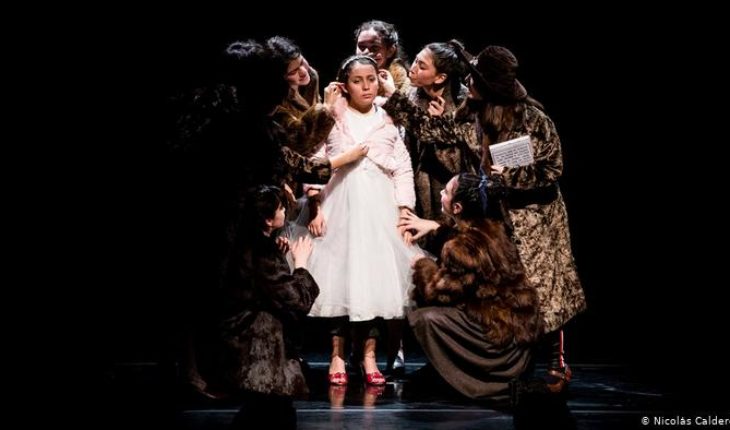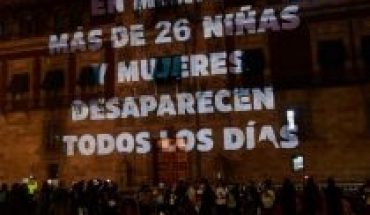The Chilean director Marco Layera already has a tour and a name in the world of dramaturgy. Not only for the quality of his works, but for the principles of the company the Re-felt. This is a theatrical collective that began in Chile in the year 2008 with a common and particular feeling: pain from a wound that does not close. Layera says that his generation is hurt by the still open wounds that the dictatorship left. That is why the pun of Re-felt is not accidental, because it seeks to feel again, more intensely, but from another place, everything that the dictatorship left crystallized in the collective memory and still live with anger and pain.
The company was gestating from a series of questions such as why the theater? Why the theater? And what is the role of the theatre and the artist? Questioning that Layera recognizes as present in all his works.
Committed artist
The company is in the role of the committed artist, because he aspires that the work will not remain in the complacency of applause. Layera firmly believes that with its last work, landscapes not to color, finally managed to jump that barrier and reach society from the scenic space and transform it. The work, which premiered at the International Festival of new Dramaturgy in Berlin in early April, works cases of abuse and violence against adolescent women from real stories and a collective work with teenagers who are not actresses Professional.
From the cases of homicides and abuses registered at SENAe, (National Service of Minors of Chile), in recent years, Chileans have begun to look at the problem with more attention. The case that uncovered almost thirty years of irregularities in that public institution was the assassination of Lissette Villa, on April 11, 2016.
Artistic work linked to the social
Deustche Welle spoke with the director and part of the cast to learn more about the work and its vision about these issues in Chile.
Why choose to work with non-actors teenagers?
From the previous work, the dictatorship of the cool, the company decided to make different actions that are more linked with social projects than artistic. We wonder, then, how to do an artistic work that is deeply rooted in a social work? If we are to present a work to a community that does not have access to the theatre, we should also meet with them to share, dialogue and exchange experiences because I think it is not enough just to do theatre.
The work, from its premise, seems to want to break the imposition of the androcentrism, of the white man, of the cisgender, and thus goes going more and more deep until wanting to break with the imposition of the adult, who dictates to the young person the rules of how to live. So how do you see the education of children and adolescents in Chile?
There is not much contradiction in this work. As a director I had to face this problem so as not to fall into the hypocrisy of doing what the work criticizes. I never had the vision of the director who is considered a semi-god who does and undo. I believe in collective production and, from that perspective, the director is the one who has the role of articulating the experiences, knowledge and scenic resources present in the process, but always with a collective saying. In this sense, this process in which we work with adolescents approached it in the same way: working from a horizontal plane, believing in the collective processes where the most important is the authorship of the participant, because there are many directors who think for The actors and I don’t care about that.
Something that surprised us was that the topics that interested these teenagers from thirteen to seventeen years, were those who were on the public agenda… That speaks of a new generation, of a new paradigm of an empowered generation with access to vast knowledge that did not have my generation.
For the topics of the work we did a thorough investigation that took us almost a year and during the work with the actresses sometimes we wondered if it was not much what we were showing. But what happens is that the reality is excessive. In the six months we worked on the work, six of our adult partners and the girls in the cast were victims of sexual abuse.
Why do you think the murders that are portrayed in the play were silenced?
It is not that they are silenced, but that nobody cares in the culture that we live. Although there are cases more heard in Chile, such as the girl who died in the national Service of minors after investigating, they realized that for ten or twenty years, there were thousands of deaths in the SENATE (we talk about 1,313 cases between 2005 and 2016 – NdR). This was a scandal in Chile but was then silenced with political pacts. There’s never any political responsibility. They are usually left in the red Chronicles of the newspapers. But the most important thing is that people find out and know that it is common and that it is a daily reality in our continent.
translated from Spanish: Chilean playwright Marco Layera in an interview with DW: “The reality is excessive”
May 9, 2019 |





